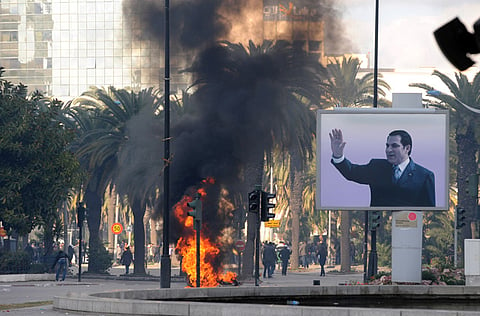Tunisia interim order ought to know its limits
Genuinely free elections require all parties to be able to talk openly to the people

The new unity government in Tunisia has a duty to prepare the country for free elections. It is important that the power of the successful popular uprising and the departure of the president are not wasted, and the inclusion of the former ruling party in the transitional government should not be an excuse to re-build its lost control of the country.
Prime Minister Mohammad Gannouchi has said all the right things. He has announced the release of political prisoners and that elections will be held in six months. But many Tunisians doubt him, as ousted president Zine Al Abidine Bin Ali's party has retained the key foreign, interior, defence and finance ministries. The fear is that these established pillars of power will swamp the three opposition leaders included in the interim government, which also includes a dissident blogger who was arrested under Bin Ali.
The new interim government is making up its own rules as it goes along, and in theory there is nothing wrong with that in this unprecedented situation. Someone has to hold the ring while anyone with political interests prepares for the country's first free elections. But it is vital that these should be open and transparent.
Genuinely free elections require all parties to be able to form themselves and talk openly to the people. The rules have to be agreed in advance and should not be changed halfway through the run-up to an election. All parties should agree to democratic principles and agree that if they win power through the ballot box, they may in turn be voted out. No one in Tunisia can forget that Bin Ali himself came to power as an interim president tasked with bringing order to a chaotic country and stopping Islamic fundamentalists from taking over. The same sad process should not happen again more than 20 years later.



